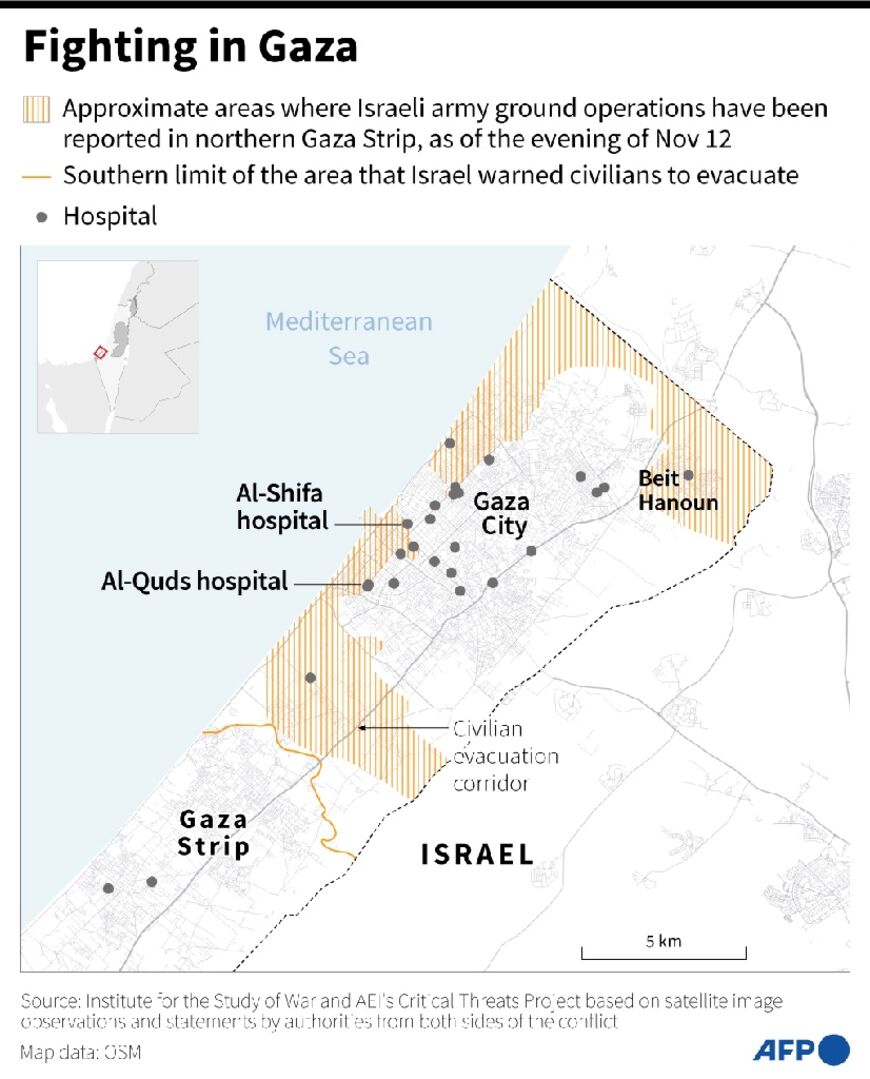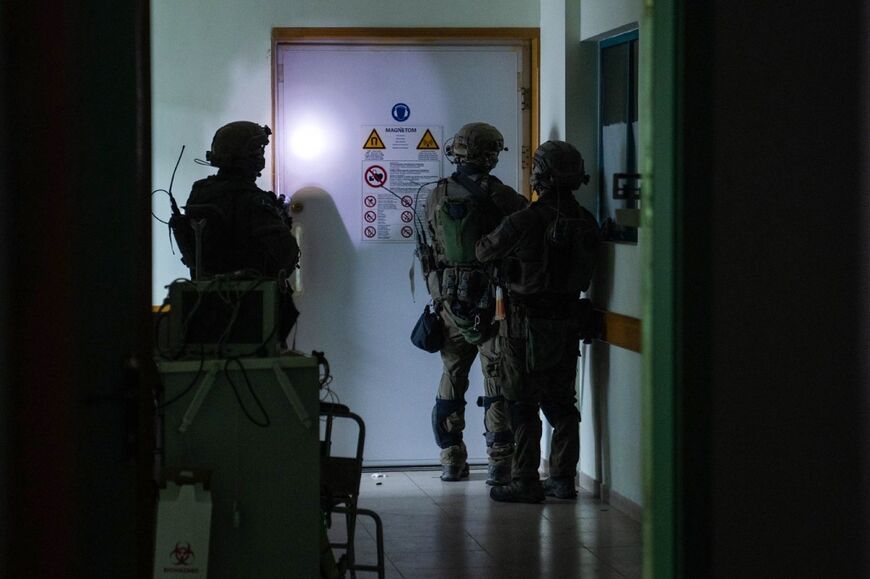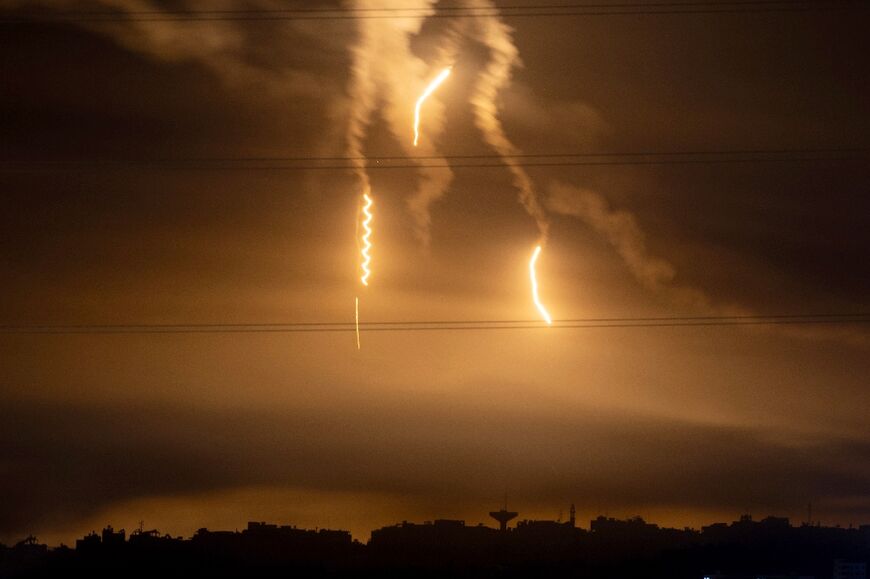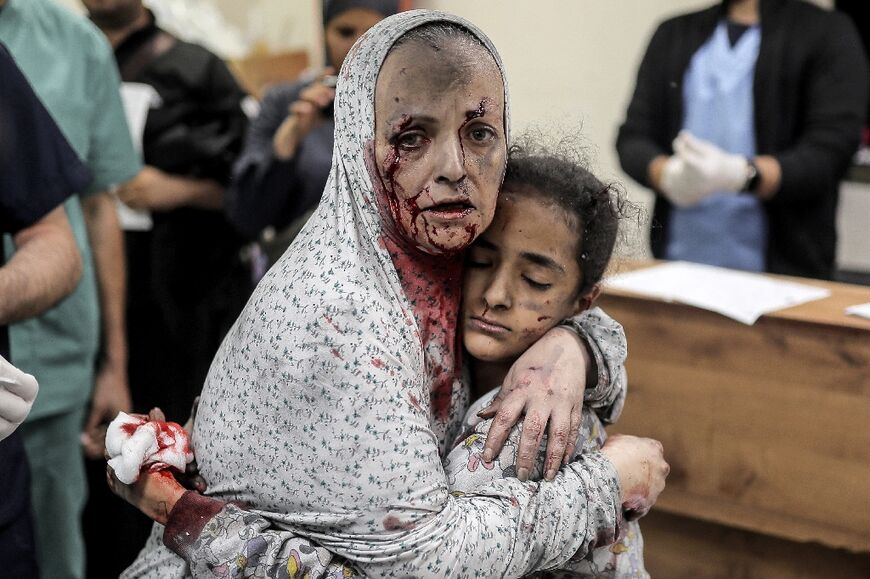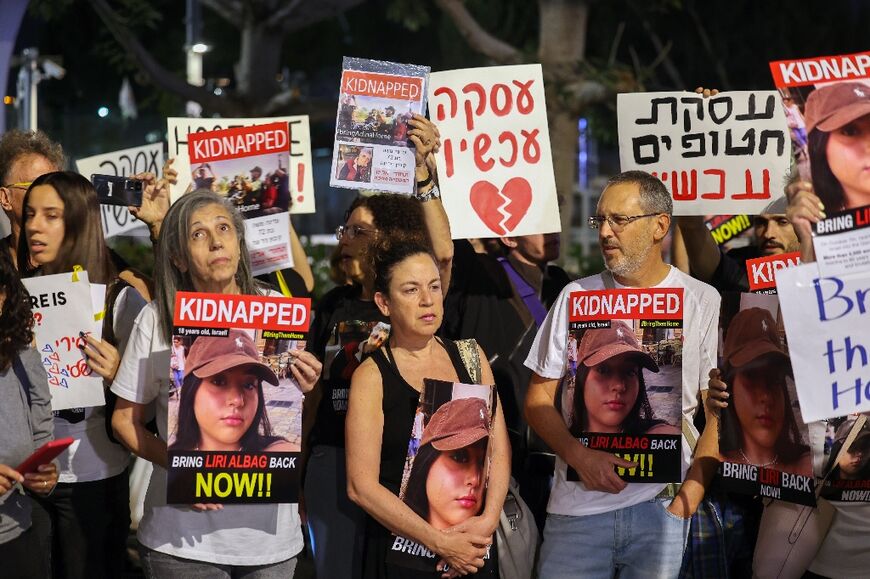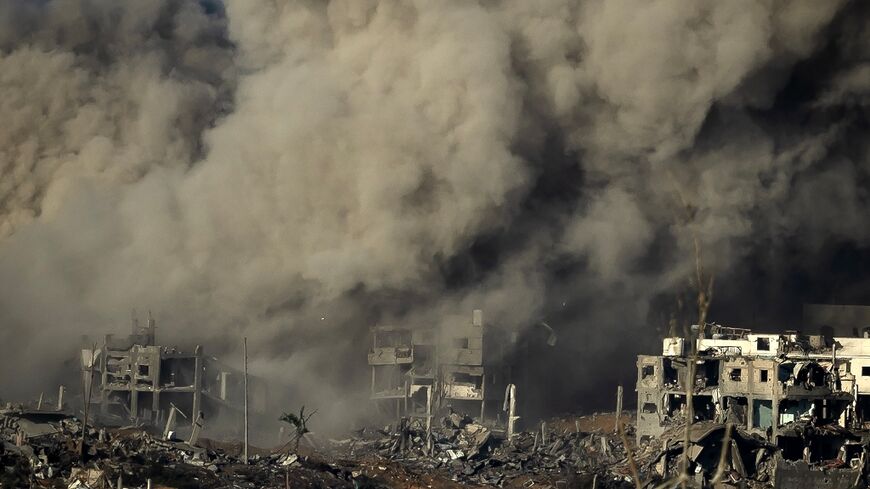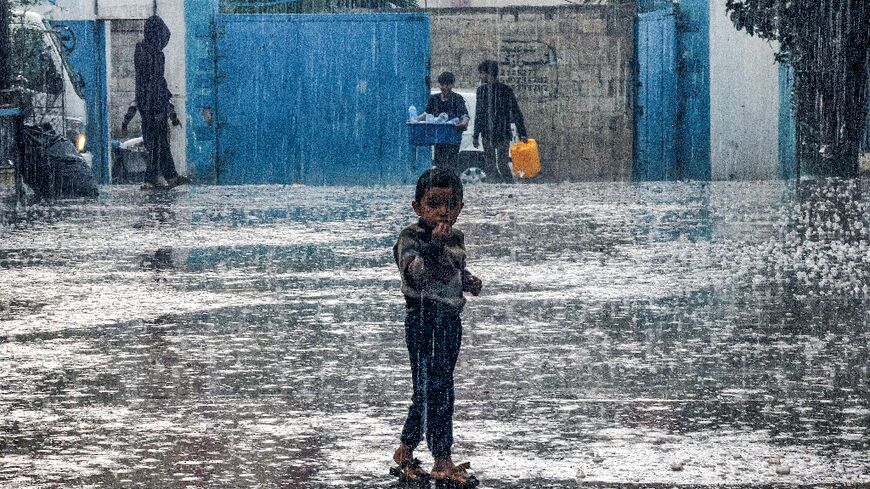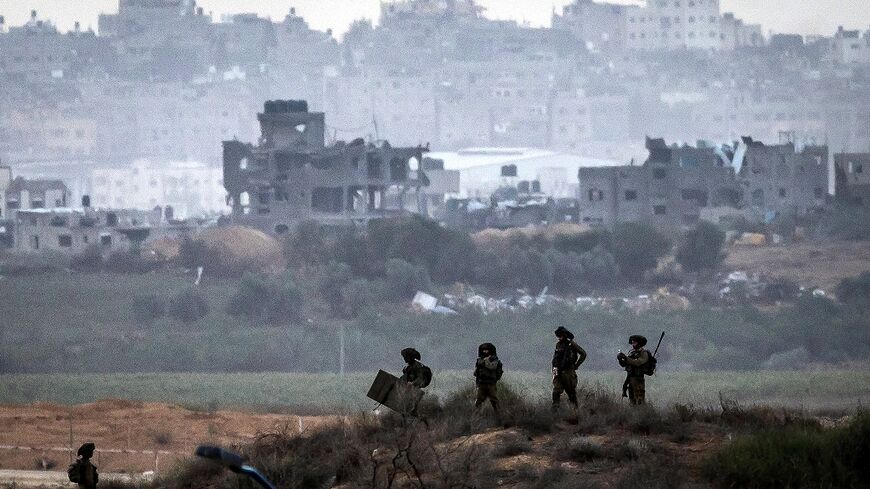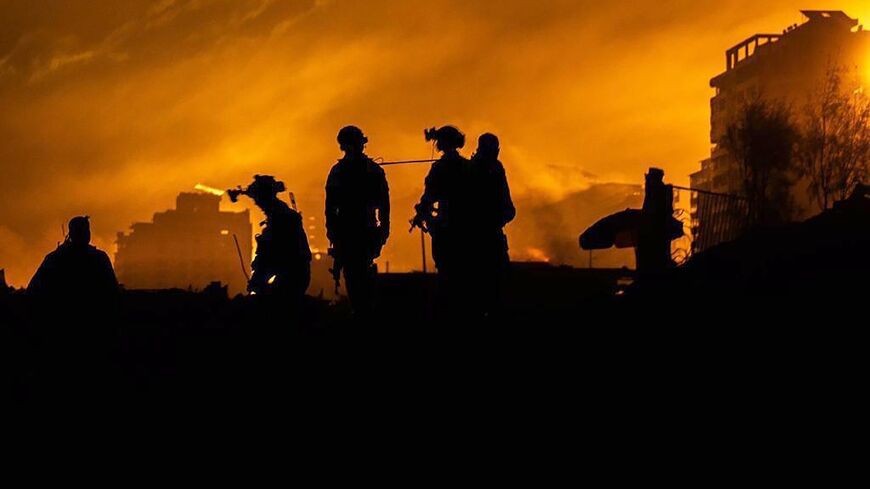Alarm as Israel raids Gaza hospital in war on Hamas
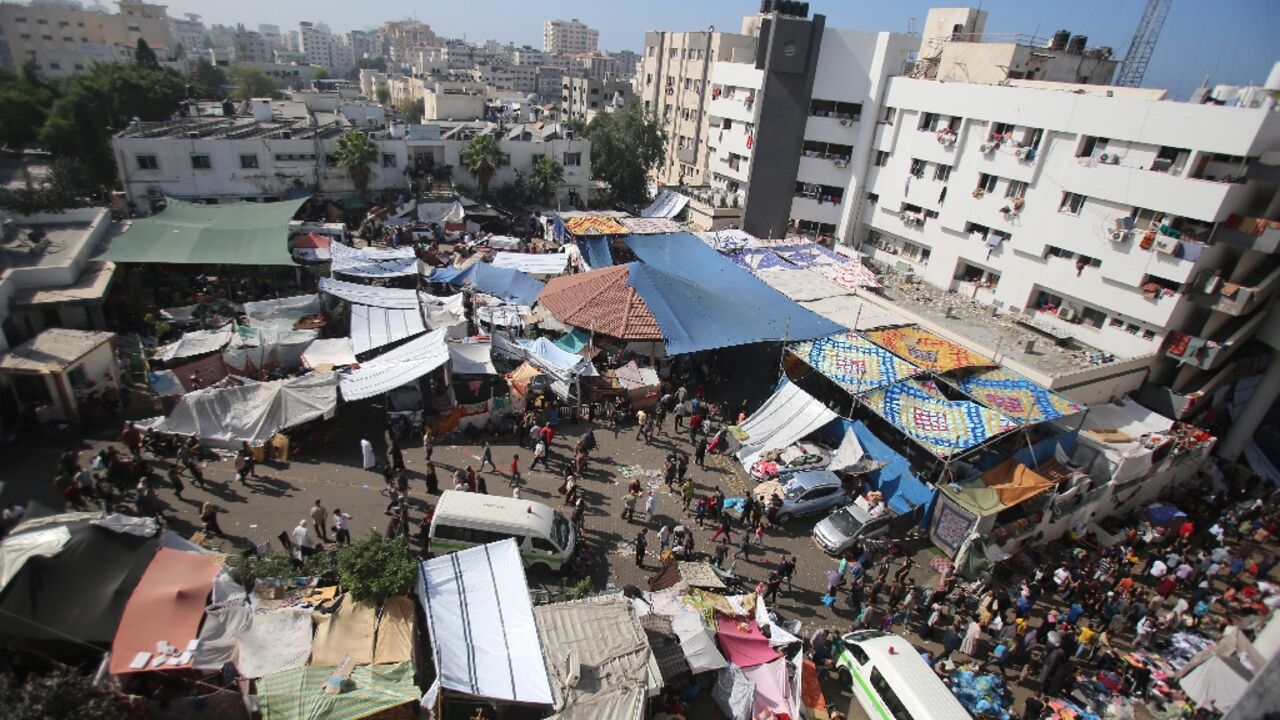
Israeli soldiers withdrew from Gaza's main hospital Wednesday after raiding and combing through the facility in their war against Hamas, as the UN Security Council called for "urgent humanitarian pauses".
Both Israel and its top ally the United States said the Palestinian militants have a command centre below the Al-Shifa complex, a charge denied by Hamas and directors at the hospital, which has become a focal point in the 40-day-old war.
A journalist in contact with AFP, trapped inside Al-Shifa, reported that Israeli soldiers, some wearing face masks, shot in the air and ordered young men to surrender when they burst into the hospital overnight.
About 1,000 male Palestinians, hands above their heads, were in the courtyard, some of them stripped naked by Israeli soldiers checking them for weapons or explosives, the journalist said.
By early evening Israeli troops had withdrawn from the facility, the journalist said, redeploying around the hospital.
Israel has said the raid was executed based on "an operational necessity".
It later said troops had found "military and combat equipment" inside the compound, sharing footage which AFP was unable to independently verify of rifles, ammunition and bullet-proof vests with the insignia of Hamas's armed wing the army claimed had been seized during the raid.
The Hamas-run health ministry said Israel "did not find any equipment or weapons" in the hospital during the raid.
"Essentially we don't allow" weapons in any hospital, ministry director Munir al-Bursh said in a statement.
The UN Security Council, which has struggled to reach a joint position on the war since its start, managed to pass a resolution on Wednesday.
The text, adopted with 12 votes in favour, called for "urgent and extended humanitarian pauses and corridors throughout the Gaza Strip for a sufficient number of days" to allow aid to reach civilians in the besieged territory.
The United States abstained along with Britain and Russia.
Israeli Prime Minister Benjamin Netanyahu has vowed to destroy Hamas in response to the Palestinian group's October 7 attacks, which officials say killed 1,200 people, mostly civilians, and saw about 240 hostages taken to Gaza.
The Hamas government in Gaza says Israel's ensuing aerial bombardment and ground offensive have killed 11,500 people, also mostly civilians, including thousands of children.
- 'International investigation' -
The Hamas-run health ministry has struggled in recent days to keep an exact toll of casualties amid intense fighting in northern Gaza, and the latest figures by the Hamas government media office are likely underreported.
The Israeli army said in a statement late Wednesday its forces were "continuing to operate in the hospital complex" as it pursued its ground campaign in Gaza.
International concern over the fate of the people inside Al-Shifa hospital increased further as news of Israel's raid emerged.
"The protection of newborns, patients, medical staff and all civilians must override all other concerns," UN humanitarian chief Martin Griffiths said on X, formerly Twitter.
"Hospitals are not battlegrounds."
Qatar called for "an urgent international investigation" involving the United Nations into "the targeting of hospitals by the Israeli occupation army".
The White House pushed back against Hamas claims that President Joe Biden was "responsible" for the hospital raid over US intelligence assessments that militants were using Al-Shifa complex.
"We did not give an OK to their military operations around the hospital," National Security Council spokesman John Kirby told reporters, adding that such decisions were for the Israeli military.
The United Nations has said it estimates that at least 2,300 people -- patients, staff and displaced civilians -- were inside and may be unable to escape because of the fighting.
Witnesses in recent days have described conditions inside the hospital as horrific, with medical procedures taking place without anaesthetic, families with scant food or water living in corridors and the stench of decomposing corpses filling the air.
The situation in Gaza's other hospitals is also dire, with the World Health Organization saying 22 of 36 are not functional due to a lack of generator fuel, damage or combat.
Amman said an "Israeli bombing" close to the Jordanian field hospital in north Gaza had injured seven of its staff.
Jordan was awaiting the results of an investigation to "take the necessary legal and political steps against this heinous crime", Amman's foreign ministry said.
Netanyahu on Wednesday gave no indication that Israel was easing up its campaign, saying "there is no place in Gaza that we won't reach."
- Birth in captivity -
The Israeli premier has come under increasing pressure to do more to free hostages, with relatives of the captives calling on him to agree a deal for their release immediately.
One woman abducted by Hamas had given birth in captivity, Netanyahu's wife wrote in a letter to US First Lady Jill Biden released by the premier's office.
"You can only imagine, as I do, what must be going through that young mother's mind as she is being held with her newborn by these murderers," Sara Netanyahu said.
In Gaza, the humanitarian crisis includes at least 1.5 million people who, according to the UN, have fled southwards after Israel told them to leave the northern half of the territory.
Even though Gazans have been urged to flee south, strikes there have steadily claimed lives and destroyed homes.
"All of a sudden, all we could see was flames. We were all buried under the rubble, no one could see anyone else," said Ali Abu Jazar, who survived a strike in Rafah, in the narrow territory's south near the Egyptian border.
"We started yelling to let them know 'we're here, underneath you', so they began clearing the rubble to rescue us," he added.
A trickle of aid has made it into besieged Gaza in more than five weeks of war, and crucially fuel for generators has been in short supply.
Just hours after receiving its first delivery of fuel since October 7, the UN warned Wednesday its operations in Gaza were on the brink of collapse.
The UN agency for supporting Palestinian refugees confirmed receiving 23,027 litres (6,083 gallons) of fuel, but said it met only "nine percent" of the daily needs.


